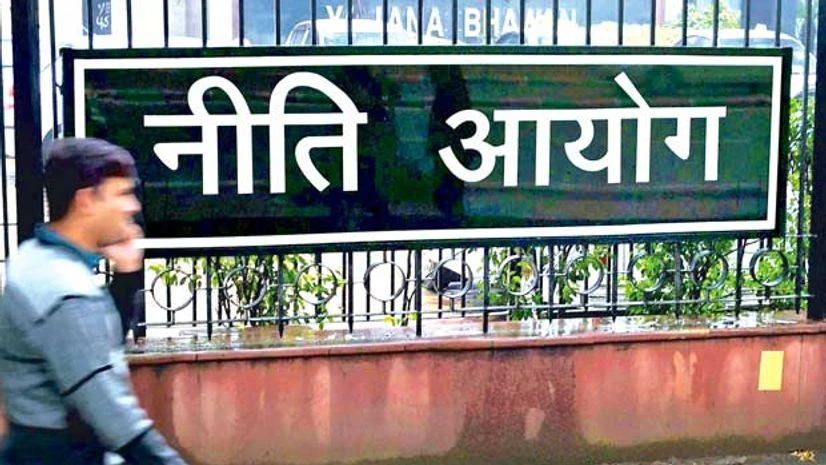The governments of Tamil Nadu and Uttar Pradesh want extra funds and greater flexibility in operating welfare schemes.
They said so at the first governing council meeting of the new NITI Aayog, the successor body to the Planning Commission. Prime Minister Narendra Modi presided.
Uttar Pradesh Chief Minister Akhilesh Yadav sought 90 per cent grants for central schemes. He said the tough conditions imposed by the Centre in many of its schemes made it difficult for most states to benefit from these. He also urged Prime Minister Narendra Modi to make the process of allocation of funds more transparent. (STATESPEAK)
More From This Section
On the government's 'sabka saath, sabka vikas' (Development for all) slogan, Yadav said, "It is not possible without provision of adequate resources to economically weaker states." At present, transfers to states as Plan assistance account for 15 per cent of central expenditure.
Tamil Nadu's O Panneerselvam said the views of states need to be heard at different levels in the hierarchy of the Aayog. He pitched for a higher flow of funds from the Centre and flexibility in the design of programmes, limiting the state's share to 25 per cent for such schemes.
He said the vertical devolution of share to the states should be at least half the aggregate resources with the Centre.
"We believe that the non-transparent, discretionary and uncertain fashion in which funds were allocated and disbursed to states by the erstwhile Planning Commission and by different central ministries under various centrally sponsored schemes must be comprehensively overhauled," he said.
Kerala's Oommen Chandy asked the PM to re-allocate funding meant for programmes like the Beti Bachao Abhiyan and Jan Dhan Yojana to schemes focussed on develop ing his state's agricultural productivity. He suggested the new body should decide on state quotas in the same manner the erstwhile Planning Commission used to do.
Supporting the concept of cooperative federalism, Yadav said NITI Aayog should have 'permanent working groups' on all major sectors, with state representatives on board. "The priorities of every state are different," he said.
Assam Chief Minister Tarun Gogoi said Modi's stress on shifting from a plan to a market economy will benefit big industrial states such as Gujarat but harm small and backward ones like Assam. Unemployment problems would grow manifold.
Gogoi said it was imperative that relatively backward states be first brought up to match the level of the comparatively developed ones. "Our development agenda should give a special thrust on those which require special focus and attention," he said.
Bihar Chief Minister Jitan Manjhi, facing political turmoil back home, also asked for more central funds to states for social development programmes.
He demanded special category status for his state.
Andhra Pradesh's Chandrababu Naidu demanded higher allocation, saying his state had suffered due to its bifurcation. Complaining that central assistance was disproportionate to the population, Naidu demanded that AP be provided a special status category and a special package.
Recently, the finance ministry announced Rs 850 crore of special funds to Andhra Pradesh and some tax breaks. More concessions are being worked out.
Himachal Pradesh's Virbhadra Singh advocated the need for setting up a hill division for all hilly states, the NITI Aayog acting as a permanent secretariat for this. He said hill and special category states should be provided a package of incentives to attract industries, so that the 'Make in India' programme does not remain confined to a few industrially advanced states.
He also urged for liberal funding to protect the handicrafts sector.
West Bengal's Mamata Banerjee chose to skip the meet.
Modi announced rationalisation of 66 centrally sponsored schemes, which might include cutting some of these.
| A DECENTRALISED STRUCTURE |
|

)
